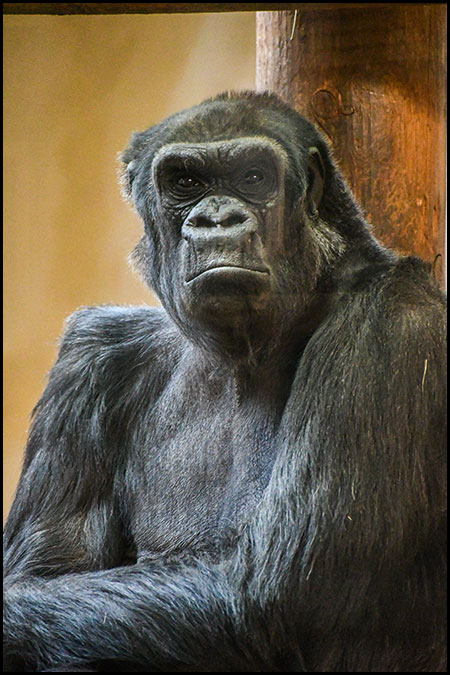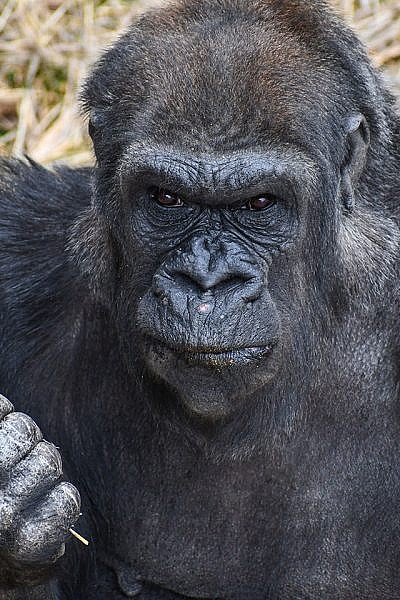Since mid-November, CMZoo’s typically social and outgoing 48-year-old Western lowland gorilla, Roxie, has had several ‘off’ days. She’s spending more time in bed and looking lethargic.

“Roxie has been a big part of the CMZoo family since she was born here in 1976,” Joanna Husby, Primate World animal care manager says. “She’s lived at the Zoo longer than any other animal here, and we’ve been through health scares with her before, but this time it looks a bit different.”
Roxie is eating, drinking, and participating in training, but she is not walking or climbing as well as usual. She’s spending a lot of time in her den, resting, which means she’s choosing rest over socializations that are vital to gorillas’ wellbeing. Roxie chose to go outside and enjoy the sunshine this past weekend, but the longer she isn’t improving, the more concerned the team is growing.
Keepers and veterinarians have not identified anything that could be causing her discomfort from what they can see during up-close training sessions with Roxie. While her team works to diagnose and help her, Roxie is voluntarily taking oral antibiotics and increased pain and anti-inflammatory medications. Oral medications have helped her overcome bouts of illness quickly in the past, but she’s not bouncing back as fast this time.
If oral medications do not help Roxie soon, the next option could be to immobilize her for additional diagnostics. Her last immobilization and treatment extended her life for the past five years, but it was risky.
In 2019, Roxie became lethargic and refused to eat or drink entirely. While she was under anesthesia for an exam, Roxie went into cardiac arrest. Her team brought her back to life with CPR and emergency drugs. The examination, although hard on Roxie and the team, revealed several issues that the team was able to treat. Since recovering five years ago, Roxie has had one of the longest stretches of consistently good health – up until this recent series of off days.
“In 2019, in the middle of Roxie’s health scare, her care team talked about where we would draw the line, treatment-wise, for Roxie,” Joanna says. “We work to find the balance for her and all of our animals. How much are these treatments asking of Roxie, and how long is Roxie going to benefit from them, given her advanced age? We still agree that her quality of life is more important than attempting to extend her life by taking extreme measures. She’s old, and we want her to live with dignity and comfort in this final chapter.”
The team has agreed to say no to extensive treatments that they might pursue for a much younger gorilla. Roxie is 9 years past the median life expectancy for female Western lowland gorillas in human care, according to the Association of Zoos and Aquariums.
“We’re really hopeful she just needs a few more days on medication or medication adjustments, but if not, an immobilization could be the best thing for her,” Joanna says. “A thorough examination of Roxie under anesthesia could help us pinpoint something that’s easy to treat, or we could find something that we could manage comfortably for her long-term, or we could discover something that would require extensive treatment. Every decision we make will be with her best interest at heart.”
As Roxie and her care team work together to support what’s best for Roxie, CMZoo will provide updates.

